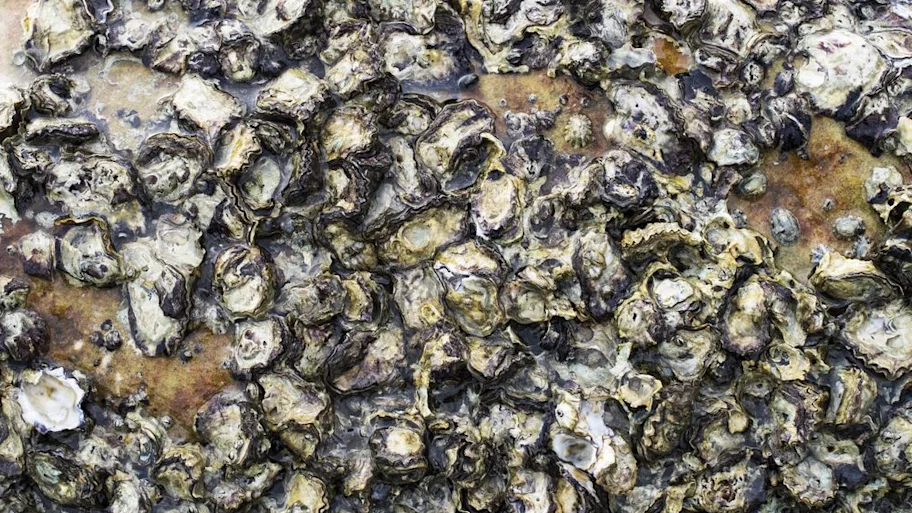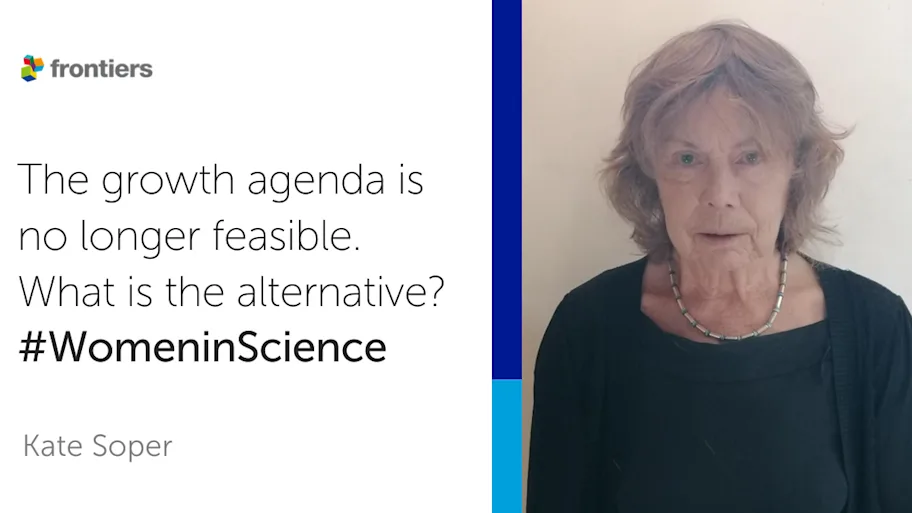
- Science news
- Featured news
- Meet a scientist who's helping to create a 'shared vision' for future rewilding
Meet a scientist who's helping to create a 'shared vision' for future rewilding

Dr Sally Hawkins (formerly a PhD student at the University of Cumbria, and currently a postdoctoral research associate at that university's Institute of Science and Environment) works closely with the Rewilding Thematic Group (RTG) of the IUCN's Commission for Ecosystem Management, helping them to develop guidelines on rewilding.
In a new study in Frontiers in Conservation Science, which she authored together with her former academic supervisors Profs Ian Convery and Steve Carver, Hawkins proposed new conceptual tools for wildlife practitioners, based on data from rewilding organizations, case studies, and research.
About her work for the RTG, she writes: "Rewilding is a fascinating topic as it is a real mix of theory and on-the-ground application with many diverse influences. I saw this as a unique challenge to try and understand what rewilding is – what connects rewilding projects and theories despite all the differences – to create guidelines and a framework to reflect rewilding’s plurality while providing some common ground and a shared vision for all those promoting it."
As part of our Frontier Scientist series, Dr Hawkins caught up with Frontiers to tell us about her career and research.
What inspired you to become a researcher?
I have not followed a traditional route into research. I grew up in a small town in South Africa at a time when women were not encouraged to follow STEM careers. I did my undergraduate and Masters degree in literature and ended up working in academic publishing where I became fascinated by research and the impact it can have in solving some of the complex issues we’re facing in contemporary society. I spent years wishing I was a researcher before having the courage to change careers.
I moved to the Lake District from London and started the first year of a BSc in Conservation Biology at the University of Cumbria. I was particularly interested in conservation biology because of my experience of moving from a very wild landscape in South Africa to a very ecologically degraded landscape in the UK. I became very interested in looking at how human-nature relationships are influenced by different contexts.
I also started working part time at the Environment Agency and I became very involved in a lynx reintroduction project with Prof Ian Convery who suggested I do a PhD and became my supervisor! Myself, Ian, and others working on the lynx project then co-founded the Lifescape Project, a rewilding charity that has grown way beyond our initial expectations since we founded it in around 2019.
I finished my PhD in 2023 and am now working as a postdoctoral research associate with the University of Cumbria, although I have recently moved to Melbourne, Australia and am looking for opportunities to progress my career here.
Can you tell us about the research you’re currently working on?
I’m currently focusing on two projects. The first is continuing my work on rewilding guidelines with the IUCN's Rewilding Thematic Group. We’re running some workshops over the coming months and also working with a very diverse and experienced team of collaborators to bring the guidelines to fruition.
Two years ago, I also started working as a postdoctoral research associate with my PhD supervisors Prof Ian Convery and Prof Steve Carver. We’re running one of the workstreams in a multidisciplinary, UKRI-funded Treescapes project led by the University of Manchester.
CASTOR seeks to inform catchment-scale restoration drawing on research in ecology, hydrology, archaeology, social sciences, and arts-based research. I’m leading the social science workstream, which is using Q methodology to assess stakeholder priorities in three case study catchments in England. Working with such an enthusiastic and multidisciplinary team has been really exciting and interesting and our work is already influencing restoration in these catchment areas.
In your opinion, why is your research important?
Given my experience with practical restoration and conservation, my research has always been linked to real-world practicalities, especially considering socio-political or cultural barriers to restoration and issues with extant paradigms in conservation. This has inspired me to look beyond assumptions and seek more systems-based, ethical, and effective routes to restoration.
One of the reasons that rewilding is so diverse and plural (some might say confusing) is that it characterizes a shift from traditional conservation paradigms that rely on command and control governance and compositional restoration goals, towards a more relational paradigm and functional restoration goals. This necessitates considerations for the complexity of social-ecological systems when applying rewilding. This is difficult as a lot of the skills and methods to apply conservation, restoration, and rewilding are based on more finite and controlled project management approaches.
Ultimately, those applying rewilding want to know what it is and how to do it, and our research is important in trying to provide useful information while also trying to support this shift towards more complex systems-based approaches.
Are there any common misconceptions about this area of research? How would you address them?
Yes, probably the biggest misconception when it comes to rewilding is that there is so much conflict over what it is. This isn’t helped by the many debates going on in the rewilding literature, namely around theories related to baselines and conflicts in wider conservation between pragmatism and transformation, or anthropocentrism and ecocentrism. This has led to perceived ideological rifts between what are thought to be different approaches to rewilding (usually considered North American vs European).
My PhD research found that actually there is a lot of common ground among those promoting rewilding, whether in theory or practice. Almost all those I surveyed reflect a vision for functioning ecosystems and coexistence at a landscape scale. This requires humans to accommodate non-human nature and natural processes in our landscapes, supporting more functional ecological restoration goals. Most of the differences in application relate to different contexts, but these differences are not a problem.
Rewilding is not about replicating the methods used elsewhere, it responds to the context in a given area, including values, ecological conditions, land uses, policies, etc, to achieve the goals of coexistence. In that way it balances pragmatism and transformation, which are often thought to be in opposition with each other.
What are some of the areas of research you’d like to see tackled in the years ahead?
I’d like to consider this concept of coexistence more in future research. As it’s currently approached in conservation research and policy, coexistence is still a very anthropocentric notion. It’s about protecting human interests in landscapes in order to promote coexistence, usually with apex predators. The idea of coexistence that we have seen in our research on rewilding is far more 'ecocentric' – it considers the needs of all species in the landscape, including humans. I’d like to focus on this shift in the meaning of coexistence in conservation policy and practice.
How has open science benefited the reach and impact of your research?
Given my experience in academic publishing, I’ve always been an advocate for open science because of its potential to increase impact and access to research, particularly with more practice- or policy-focused research, and to improve transparency in research.
However, it does reflect a paradigm shift in research and publishing and, as with any major change, it comes with challenges. I hope that publishers will work with researchers to address some of these challenges such as costs – especially for early career researchers and practitioners, the ethics of open data, etc.
Along with open science there is a real need to innovate traditional publishing models and traditional methods for evaluating academic impact, 'success' and career progression.
If you have recently published your research with Frontiers and believe you have a story to tell, then you might feature as part of our new Frontier Scientists series! Send an email with the subject line ‘Frontier Scientists’ and your name to press@frontiersin.org, as well as details on what your most recent research was about.






